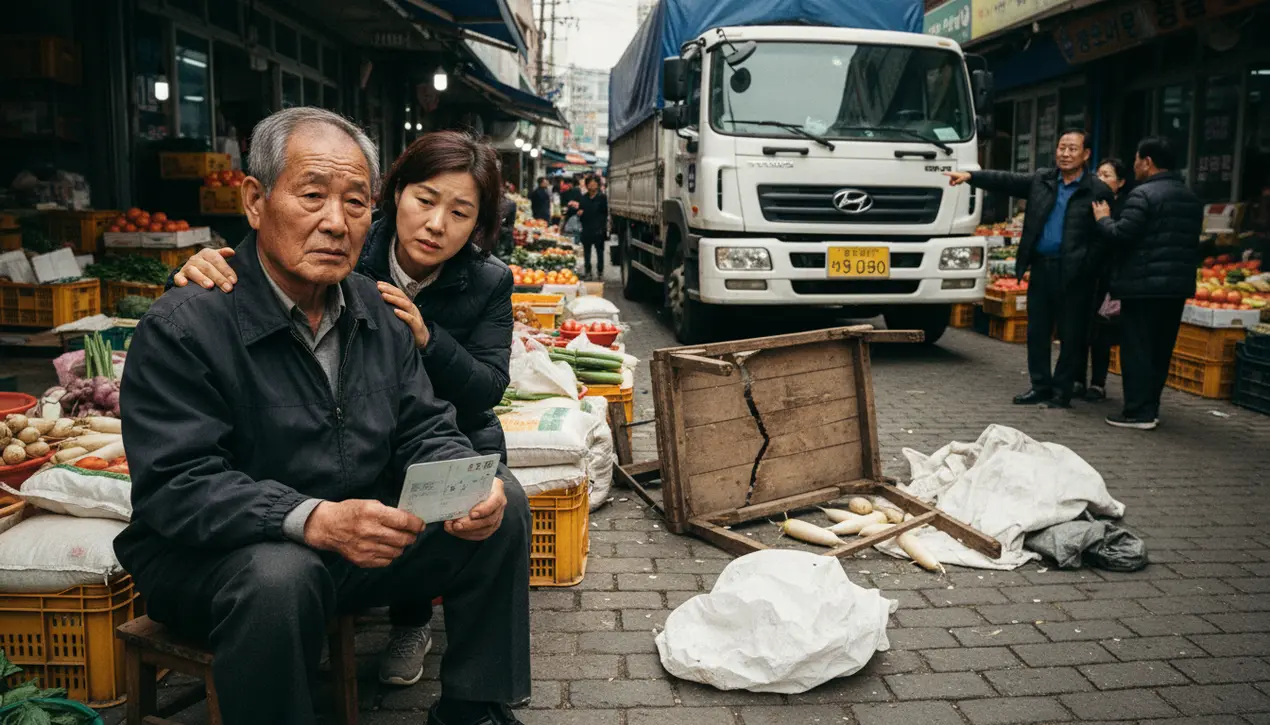
Otheraccidents & disastersTransport Disasters
South Korea Grapples with Elderly Driver Risks After Market Crash
LA
Laura Bennett
3 hours ago7 min read
The produce stalls of Jeil Market in Bucheon, South Korea, were humming with the familiar rhythm of a Thursday morning—the gentle haggling over prices, the rustle of produce bags, the low murmur of daily commerce that forms the soundtrack to so many lives. Few could have imagined that this ordinary scene would be violently rewritten in an instant when a one-tonne truck surged into the crowd, a metallic intruder in a space built for human connection.The aftermath was a tableau of tragedy: two lives lost, nineteen people injured, and a community's sense of security shattered. Speaking with vendors in the days that followed, the stories were etched with the terrifying clarity of near-misses.One radish seller, her voice still trembling, recounted how she had just stepped forward to assist a customer, a simple act of service that unknowingly pulled her from the path of the oncoming vehicle. 'If I had stayed where I was, I could have died,' she shared, a profound gratitude mixed with the trauma, 'Later, I told her how grateful I was.' This poignant detail—the life saved by a momentary step—highlights the fragile thread on which our fates sometimes hang. The police investigation pointed to a driver error by the 67-year-old man behind the wheel, a fact that immediately plunges this specific incident into a much broader, and increasingly urgent, national conversation.South Korea is aging at one of the fastest rates in the world, a demographic revolution with profound societal implications, and the issue of elderly drivers is becoming a painful and recurrent theme. This is not an isolated event; it's a symptom of a larger struggle.Just last year, a similar crash involving an octogenarian driver in Seoul ignited public debate, forcing the government to re-evaluate its driver's license renewal policies for seniors. The core of the dilemma is deeply human, a conflict between individual autonomy and public safety.For many older citizens, a driver's license represents more than a privilege; it is a tangible token of independence, a lifeline to groceries, medical appointments, and social connection in a society where public transport may not reach every corner. To relinquish that license can feel like a surrender of one's place in the world, a step towards dependency.Yet, the data presents a stark counter-narrative. National Police Agency statistics consistently show that drivers aged 65 and over are involved in a disproportionately high number of fatal accidents compared to other age groups, with declining cognitive reflexes, vision, and physical mobility often cited as contributing factors.The South Korean government has attempted to navigate this sensitive terrain with measures like offering financial incentives for voluntary license surrenders and mandating more frequent medical check-ups for older drivers. However, critics argue these steps are insufficient, merely treating the symptom rather than the disease.The real solution, as sociologists and urban planners suggest, lies in building a society that does not force its elderly to rely so heavily on private vehicles. This requires a massive investment in age-friendly public transportation, particularly in suburban and rural areas, and the development of robust community support networks that can provide the mobility and connection a car once offered. The tragedy at Jeil Market is therefore a heartbreaking catalyst, forcing a nation to look beyond the immediate headlines and confront a difficult question: how do we honor the dignity and independence of our aging population while unequivocally ensuring the safety of everyone on the streets? It is a question without easy answers, but one that South Korea, and indeed many other rapidly aging nations, can no longer afford to ignore.
#South Korea
#traffic accident
#elderly driver
#market crash
#Bucheon
#casualties
#road safety
#editorial picks news
Stay Informed. Act Smarter.
Get weekly highlights, major headlines, and expert insights — then put your knowledge to work in our live prediction markets.
Comments
Loading comments...
© 2025 Outpoll Service LTD. All rights reserved.